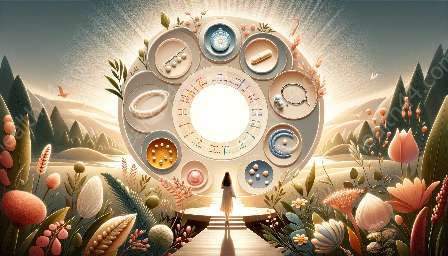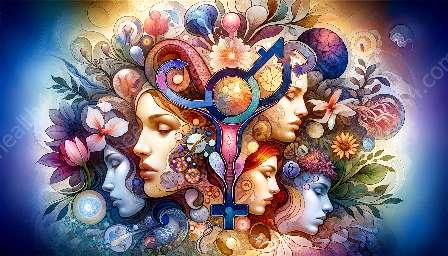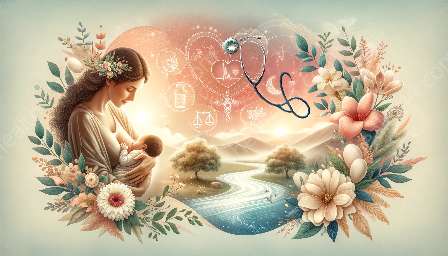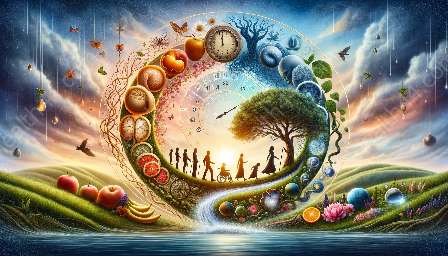Reproductive health is an essential aspect of overall well-being, and its relationship to aging is a topic of profound significance. As individuals age, various physiological and hormonal changes impact reproductive health, raising important considerations for individuals at different stages of life. It is important to understand the interplay between reproductive health and aging, as well as the impact on overall health. In this comprehensive guide, we will delve into the intricacies of how aging affects reproductive health and explore strategies to maintain optimum well-being.
The Impact of Aging on Reproductive Health
Aging is a natural and inevitable process that affects various systems within the human body, including the reproductive system. Both men and women experience age-related changes that can influence fertility, sexual health, and overall reproductive well-being. These changes occur as a result of biological, hormonal, and lifestyle factors, leading to a range of physical and emotional implications.
Female Reproductive Health
For women, aging can bring about significant changes in reproductive health. As women approach menopause, typically occurring in their late 40s to early 50s, the ovaries produce fewer hormones, leading to a decline in fertility and changes in the menstrual cycle. Menopause also marks the end of a woman's reproductive capacity, accompanied by symptoms such as hot flashes, vaginal dryness, and mood disturbances.
Male Reproductive Health
Similarly, men experience age-related changes in reproductive health. While men do not undergo a clear-cut transition like menopause, they may experience a gradual decline in testosterone levels, affecting sexual function, sperm production, and fertility. This decline, known as andropause or late-onset hypogonadism, can lead to reduced libido, erectile dysfunction, and changes in reproductive hormone levels.
Managing Reproductive Health in Aging Individuals
Despite the natural changes that accompany aging, it is possible to take proactive steps to maintain reproductive health and overall well-being. Adopting a healthy lifestyle that includes regular physical activity, a balanced diet, and stress management can positively impact reproductive health. Additionally, seeking regular medical check-ups and addressing any concerns related to sexual health and fertility are crucial for individuals at all stages of life.
Women's Health Through the Aging Process
For women, maintaining reproductive health as they age involves understanding and managing the symptoms and outcomes associated with menopause. Seeking advice from healthcare professionals, exploring hormone replacement therapy options, and incorporating weight-bearing exercises for bone health are essential strategies for navigating the aging process while prioritizing reproductive well-being.
Men's Health Through the Aging Process
Men can optimize their reproductive health as they age through lifestyle modifications, such as regular exercise, a nutritious diet, and refraining from smoking and excessive alcohol consumption. Seeking medical guidance for addressing concerns related to sexual function and fertility is vital, as healthcare providers can offer personalized solutions to support men's reproductive health and overall well-being.
The Role of Reproductive Health in Overall Well-being
Reproductive health is intricately linked to overall well-being, and its preservation holds significance throughout the aging process. Fostering open communication with healthcare providers, partners, and support networks can contribute to maintaining a positive reproductive health outlook. Moreover, understanding the physiological changes associated with age and their impact on sexual and reproductive health can empower individuals to make informed decisions while embracing aging with confidence and vitality.
Embracing Aging with Confidence
Aging is a natural progression that presents opportunities for individuals to embrace and celebrate life at every stage. By proactively managing reproductive health, seeking necessary support, and staying informed about age-related changes, individuals can maintain a fulfilling and vibrant lifestyle. Understanding the interplay between aging and reproductive health equips individuals with the knowledge to navigate this journey while prioritizing their overall well-being.
Conclusion
Reproductive health in relation to aging is a multifaceted and dynamic topic that illuminates the complexities of maintaining well-being through different life stages. By recognizing the impact of aging on reproductive health and embracing supportive strategies, individuals can navigate the aging process with confidence and resilience. Understanding the interconnection between reproductive health, aging, and overall well-being presents a holistic approach to thriving throughout the different phases of life.























